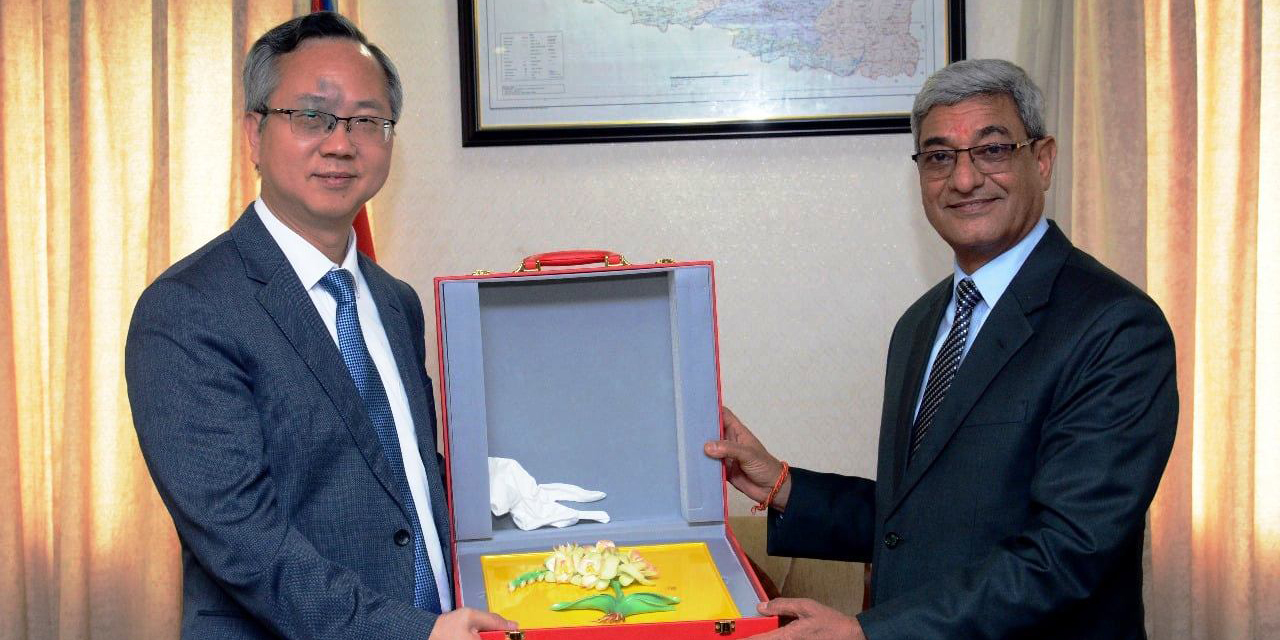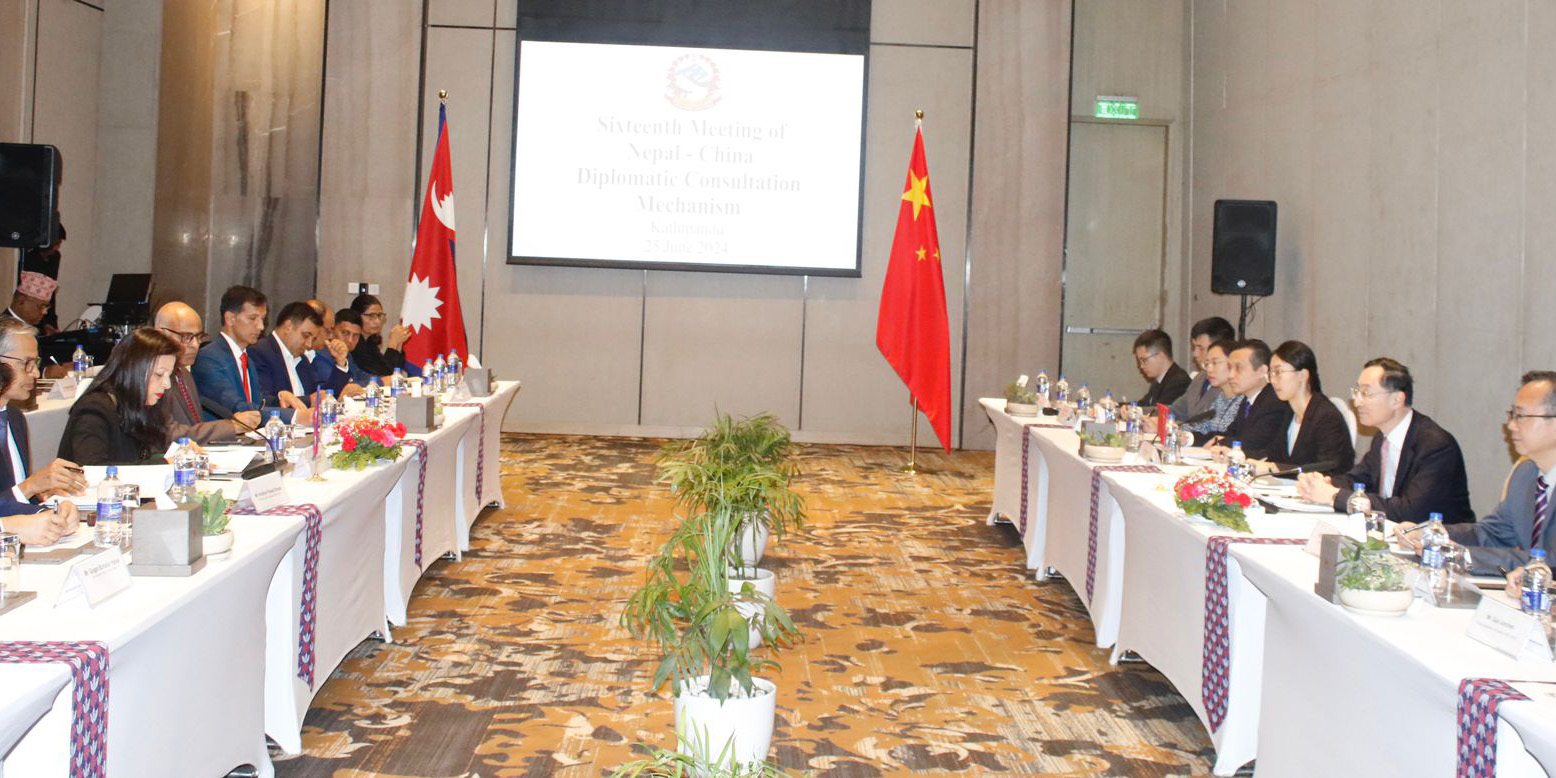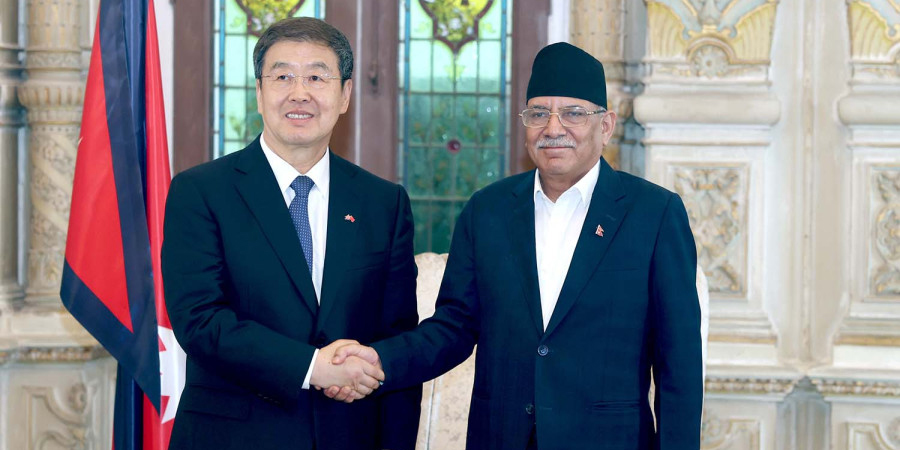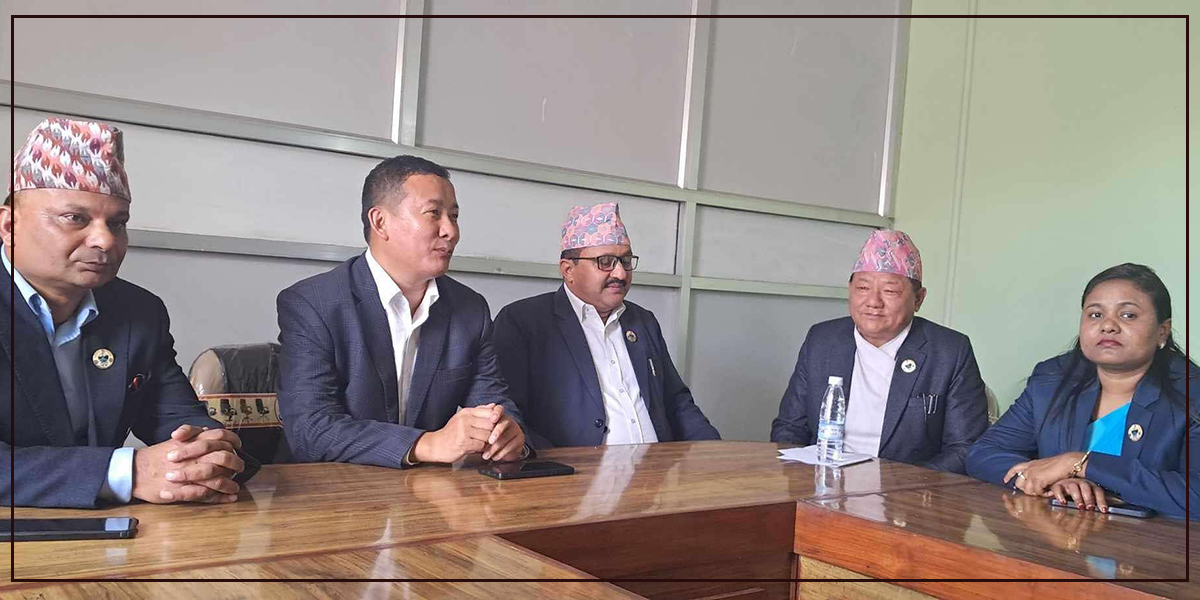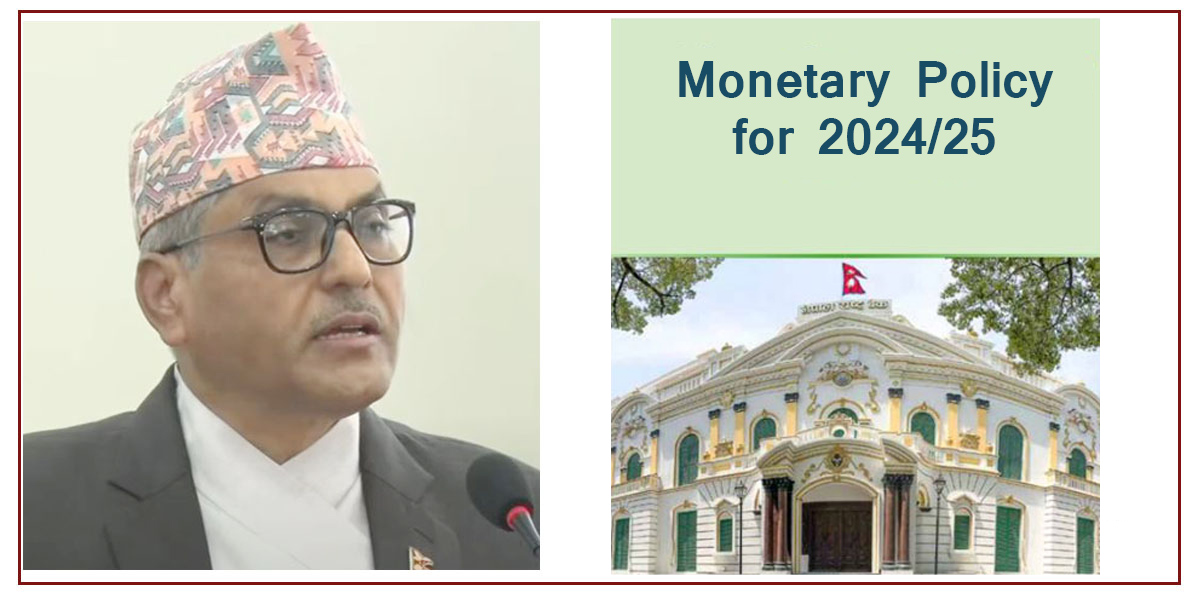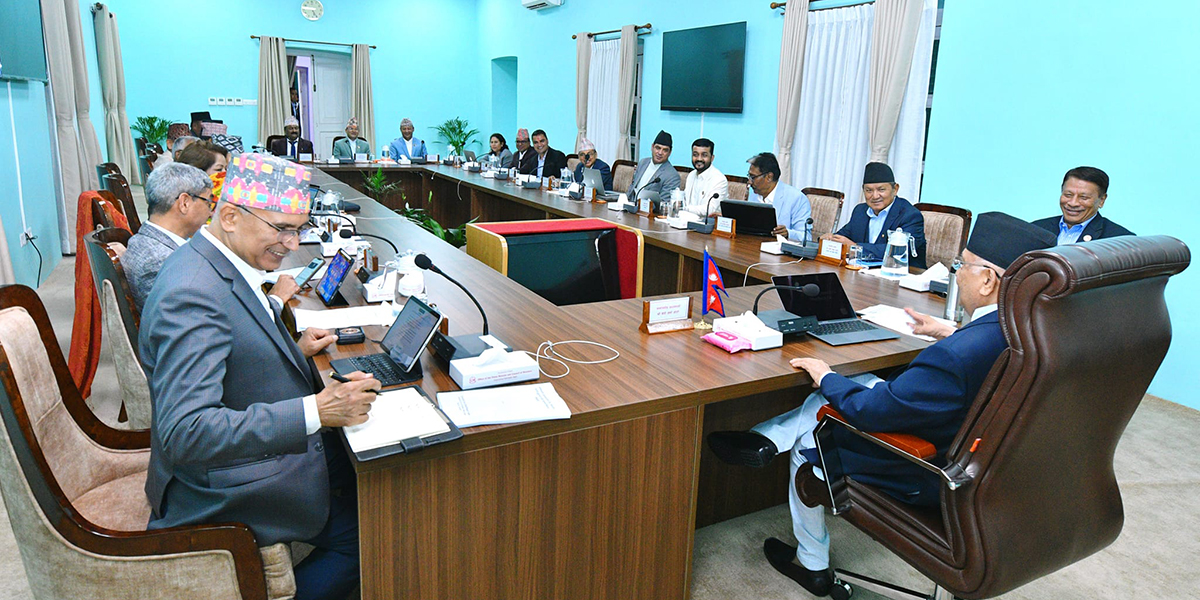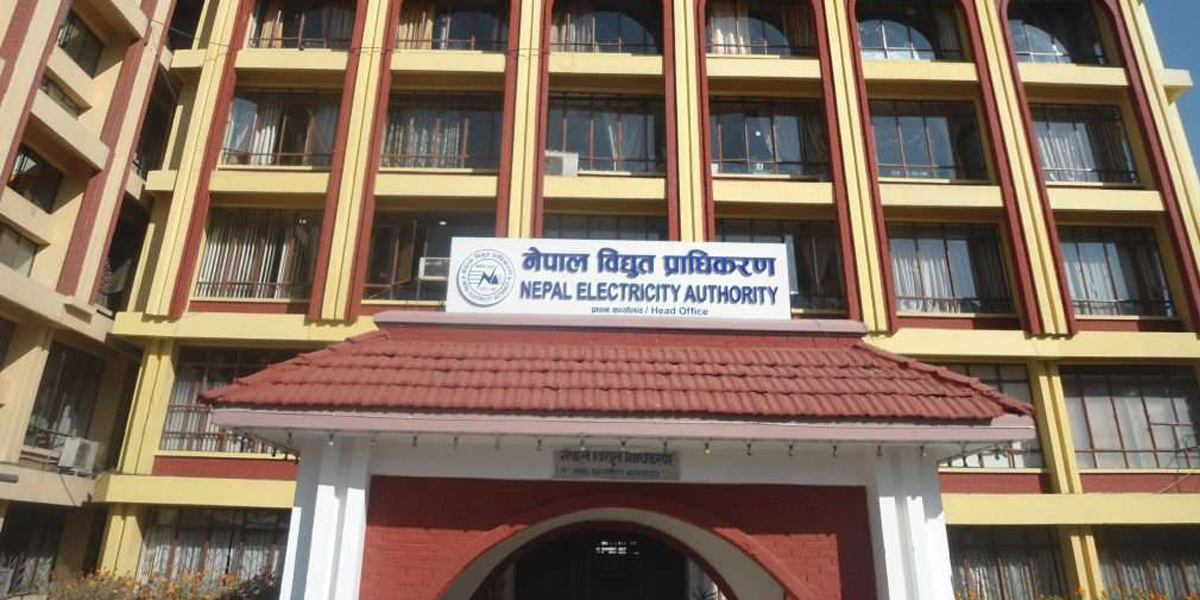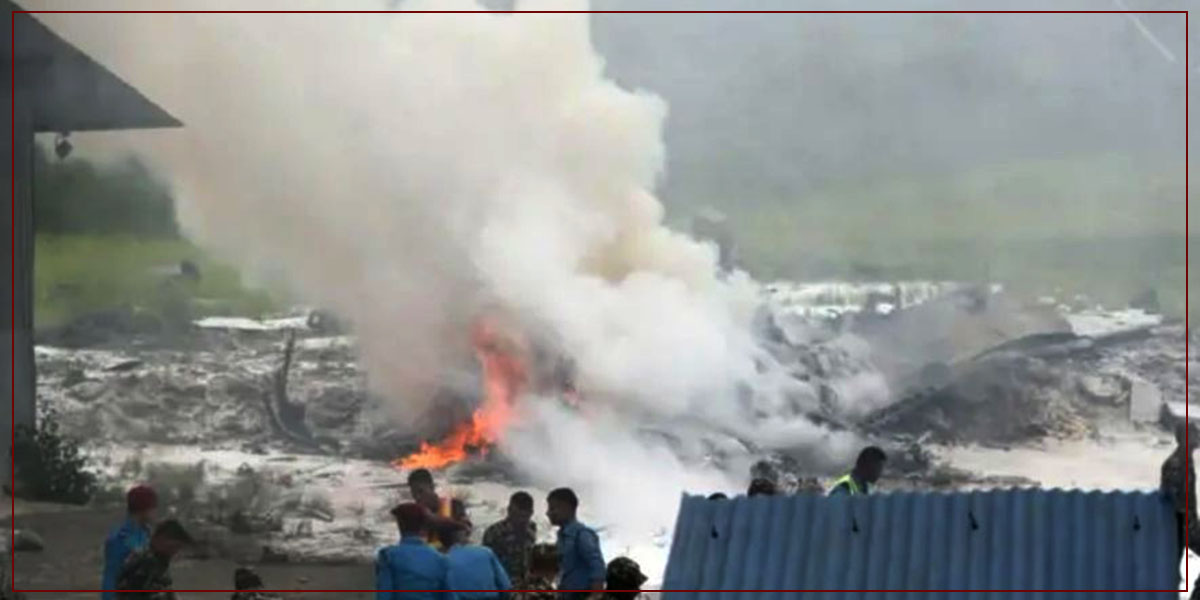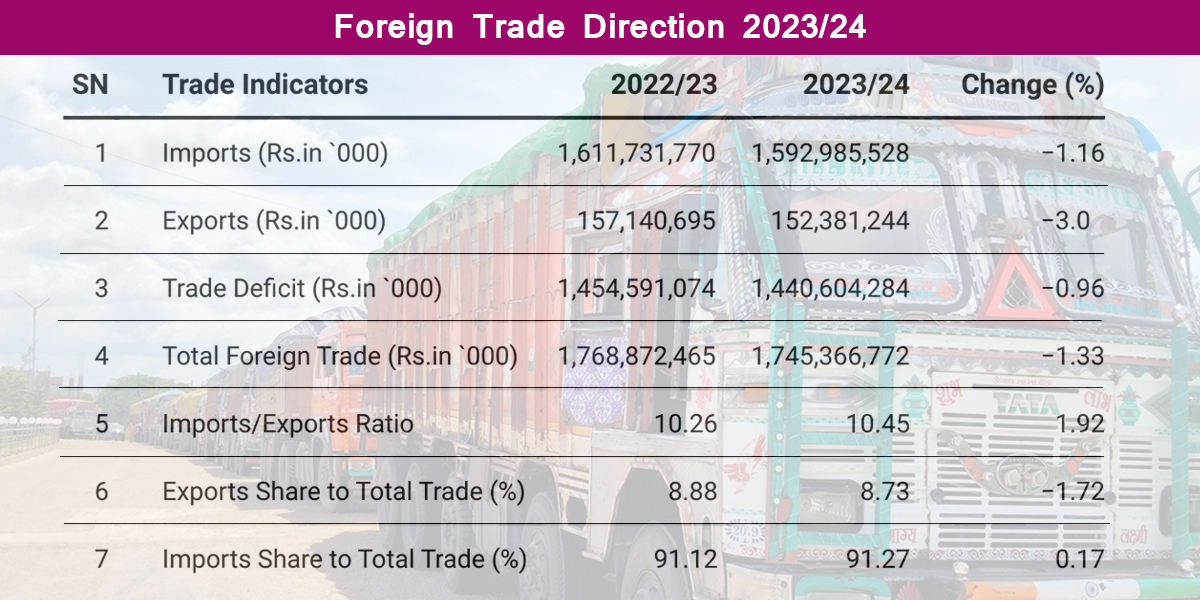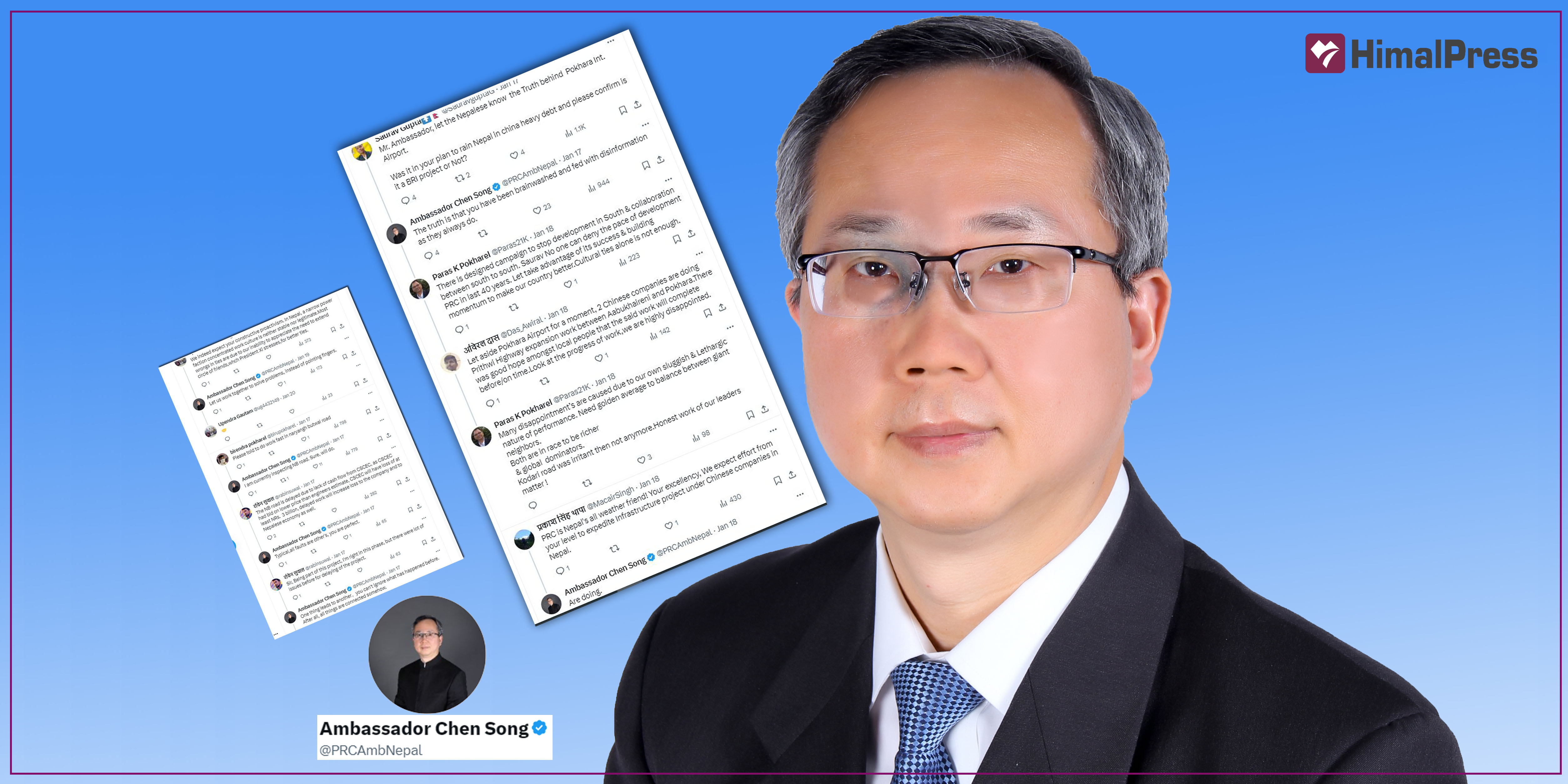
Until a decade ago, China’s diplomatic activity was relatively subdued. Many would say that Nepal was failing to grasp not only China’s actions but also its essence. Numerous self-proclaimed foreign affairs experts echoed these sentiments through various articles and interviews. Recent developments, however, have debunked these notions. Chinese Ambassador Chen Song has lifted the veil on China’s once secretive diplomacy. This implies that Nepal’s understanding of China is not only adequate but also pivotal for China’s current diplomatic engagements in the region.
Nepali leaders earlier couldn’t trust China much partly due to apprehensions from certain quarters. During that period, China refrained from overtly aligning with any specific political faction in Nepal. The palace was the only dependable mechanism for China in Nepal. In the end, even the palace couldn’t get China’s backing. It, therefore, is difficult to believe that China will support any specific political party or force is Nepal.
Our understanding of China is limited evidenced by the challenges our leaders face in direct negotiations with Chinese counterparts. This is because our leaders have to rely on translators to decipher the statements of Chinese leaders. The foreign ministry lacks a single officer proficient in the Chinese language. The government hasn’t felt the need for such diplomatic capabilities yet.
Until a few years ago, China’s diplomatic approach looked subdued largely due to the language barriers. This has shifted towards a more transparent and assertive diplomacy. Previously, China operated discreetly in Nepal as well as in other nations. But with its increasing influence on political factions and large-scale infrastructure projects, we have begun to observe a more overt engagement of China in Nepal.
The appointment of Yang Houlan as ambassador to Nepal in June 2011 marks the transformation in China’s diplomatic strategy. While his successors, Wu Chuntai and Yu Hong, may not have been as active, the media would know about their diplomatic engagements. Hou Yanqi, who succeeded Yo Hong, revolutionized China’s diplomatic outreach by leveraging social media platforms, particularly Twitter (now X). Her photo sessions at Nepali heritage sites garnered a substantial following. Under Ambassador Yanqi’s tenure, the Chinese Embassy in Kathmandu embraced a ‘Western-style’ approach to diplomacy.
Following in Yanqi’s footsteps, her successor Chen Song has maintained an active presence on X. He posts his activities on the platform and also interacts with users. This transition from ‘window diplomacy’ to social media engagement signals China’s commitment to transparency and open dialogue. In the past, people would drop their grievances in a mailbox below the embassy’s window. The embassy would respond to them through the same channel. Now, China addresses concerns directly on social media platforms. Ambassador Song is leading this transformative shift.
By observing Ambassador Song’s interactions on X, it becomes evident that China is adopting a more candid and accessible approach. He not only shares insights on the Chinese economy and diplomacy on social media but also promotes various initiatives and campaigns initiated by China. China is gauging the perspectives of the Nepali populace toward China through this medium.
Ambassador Yanqi started organizing press meetings regularly to disseminate information about recent activities of the Chinese government. She briefed Nepali media on press conferences organized by the Chinese foreign ministry in Beijing. In recent times, China seems to be trying to elevate the bilateral relationship beyond governmental interactions, instead engaging directly with citizens. Notably, China has facilitated tours for journalists to offer them insights into the country’s developments. While such visits saw a decline amid the COVID-19 pandemic, they have since resumed, with journalists departing for China almost every month.
Despite China’s efforts to promote transparency, there remains a disconnect between the Chinese Embassy officials and journalists. Many journalists find themselves unaware of China’s activities in Nepal, as the embassy appears reluctant to engage with Nepali media personnel. Nonetheless, Ambassador Song has adopted a different approach of engaging with social media users. This shows he is in direct contact with the Nepali populace.
Ambassador Song has pinned a post relating to the Belt and Road Initiative (BRI) on his profile in X. He regularly posts updates and photographs of his engagements. Recently, he penned a comprehensive post detailing China’s exports of electric vehicles to Nepal. He has posted about Chinese New Year celebrations in Kathmandu, Prime Minister Pushpa Kamal Dahal’s speech, and the arrival of 170 Buddhist monks in Lumbini via a chartered flight.
It is evident that Ambassador Song is strategically utilizing social media platforms to convey messages about China’s involvement in Nepal’s development projects. By sharing images of significant infrastructure projects such as the Kathmandu Tarai-Madhesh Expressway, where Chinese contractors are actively engaged, Ambassador Song is highlighting China’s role in advancing these initiatives. His response to criticisms regarding project progress demonstrates a diplomatic approach, advocating for collaboration to solve problems rather than pointing fingers at others.
Moreover, Ambassador Song’s engagement on X extends beyond developmental updates. He has been responding to a wide array of inquiries. Ambassador Song, who assumed office three months after the departure of Ambassador Yanqi, has completed a year in Nepal. He has refuted allegations of China’s growing involvement in Nepali politics. Unlike his predecessor, who openly advocated for left unity, Ambassador Song maintains a more neutral stance on domestic political matters.
Social media platforms have transformed access to information about Chinese activities in Nepal, facilitating direct engagement with the Chinese embassy. However, for China to truly lead on the global stage, it must embrace transparency and evolve beyond its reserved stance.


